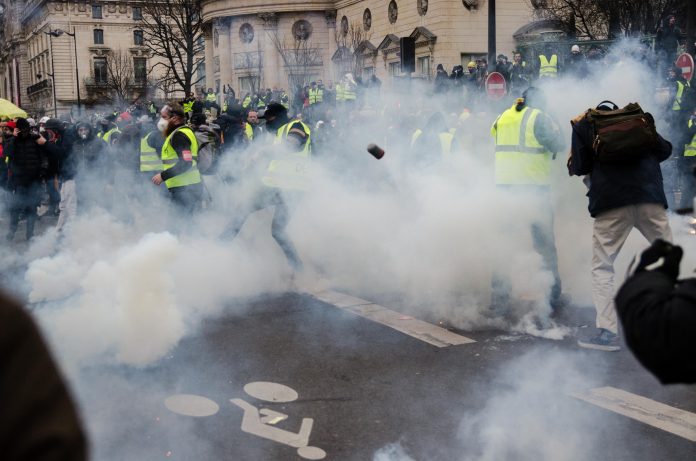The French president, Emmanuel Macron, may have brushed off the recent spate of verbal attacks by Italy’s two deputy prime ministers, the populist Luigi Di Maio and the far-right Matteo Salvini, but analysts predict that relations between France and Italy are expected to deteriorate in the run up to the European elections in May.
Italy’s deputy prime minister, Matteo Salvini, who heads the far-right League, said recently that Macron was a “terrible” French president. He also called on French voters not to back his En Marche party in the European parliamentary ballot, while Di Maio, the leader of the anti-establishment Five Star Movement, last week accused France of impoverishing Africa and bringing on the migration crisis.
As reported by the Guardian, Macron has responded saying (during a visit to Egypt on January 27) that the taunts were “of no importance” and that his only counterpart was the Italian prime minister, Giuseppe Conte, not his two outspoken deputies. He went on to say that “Italy deserves leaders worthy of its history”.
According to the Guardian, immigration was the first major catalyst as insults were traded over the handling of migrants: Macron blasted Italy for turning away a migrant rescue ship and Italy responded by accusing him of hypocrisy over the thousands of people rejected by France and sent back to Italy. France’s ambassador to Rome, Christian Masset, has twice been summoned over immigration spats.
And then, Italy’s other deputy prime minister, Luigi Di Maio, threw his support behind the anti-government gilets jaunes (yellow vests), who have held protests in France since early December, urging them to “not give up”.
Di Maio’s accusation last week that France “hasn’t stopped colonising African states” led to France’s foreign ministry summoning the Italian ambassador, Teresa Castaldo.
Speaking to the Guardian, Franco Pavoncello, a political science professor and president of the John Cabot University in Rome, said that as the EU elections approach, more differences between the two countries will likely be aired.
“I believe that both governments use each other to vent their dissatisfaction and certainly the EU elections are very important as everyone tries to carve a position,” he added. “But I don’t think things are going to get better. And after the vote we’ll likely have a very different political scenario.”

